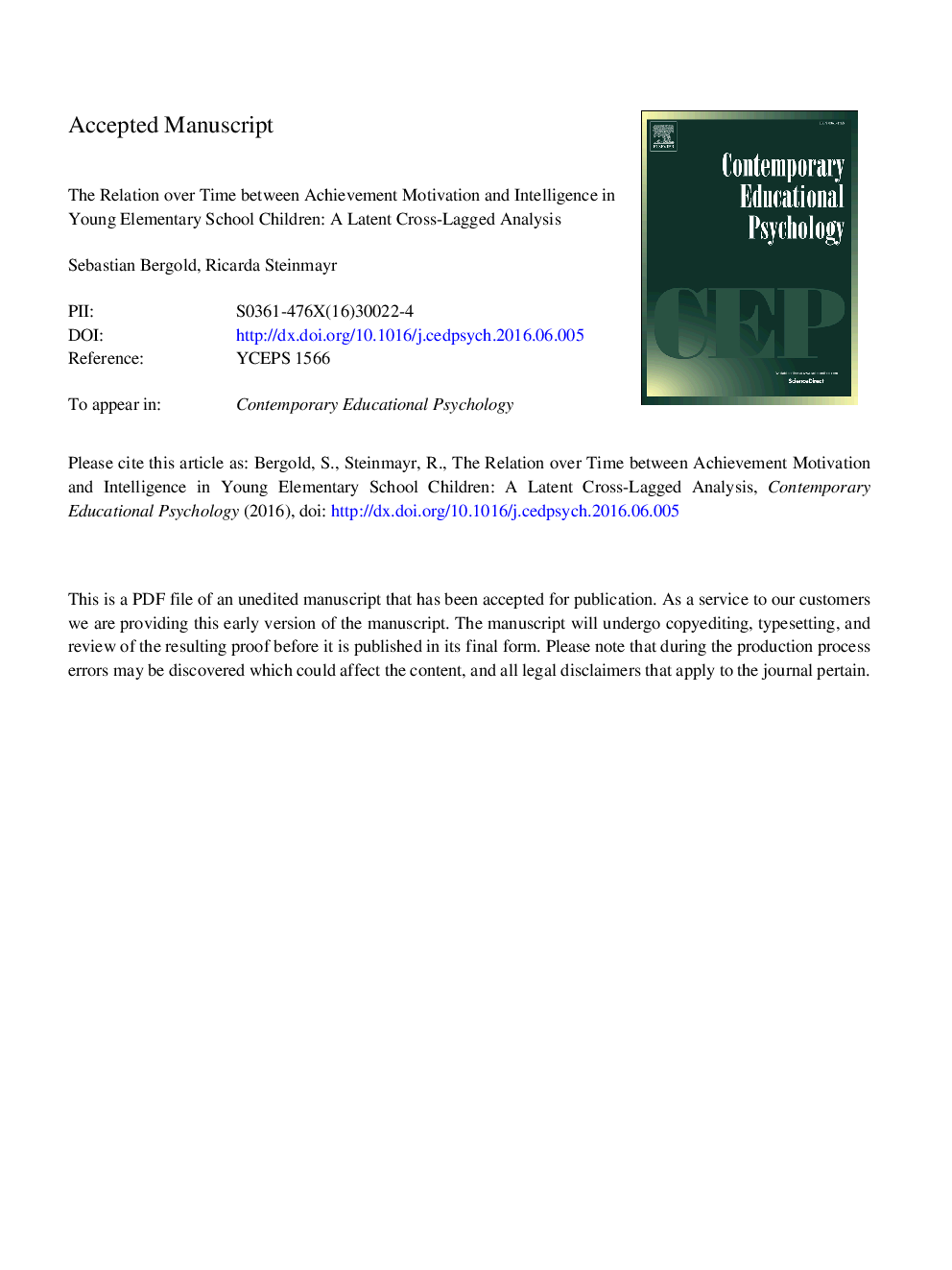| Article ID | Journal | Published Year | Pages | File Type |
|---|---|---|---|---|
| 6839815 | Contemporary Educational Psychology | 2016 | 51 Pages |
Abstract
Children undergo considerable change in both their intelligence and achievement motivation during their early elementary school years. Previous studies have already identified a significant correlation between the achievement motive and intelligence. However, it is still unknown whether and to which extent both variables might influence each other in their development. This study examined how hope for success and fear of failure were each linked over time with intelligence and vice versa. A sample of Nâ=â157 first-graders (Mâ=â6.67âyears, SDâ=â0.50) was followed for 9âmonths. At two measurement occasions, the children were administered the Culture Fair Intelligence Test - Scale 1 and a questionnaire assessing achievement motivation. After establishing measurement invariance across time, latent cross-lagged analyses were applied. Results showed that base-level fear of failure negatively predicted development in intelligence (βâ=ââ0.26), especially in children with lower base-level intelligence, whereas there was no effect of hope for success. Results are discussed with regard to potential mediating factors and implications for instruction to foster both motivational and intellectual development in elementary school children.
Keywords
Related Topics
Social Sciences and Humanities
Psychology
Applied Psychology
Authors
Sebastian Bergold, Ricarda Steinmayr,
